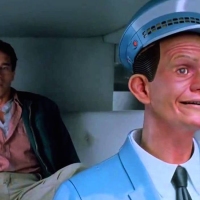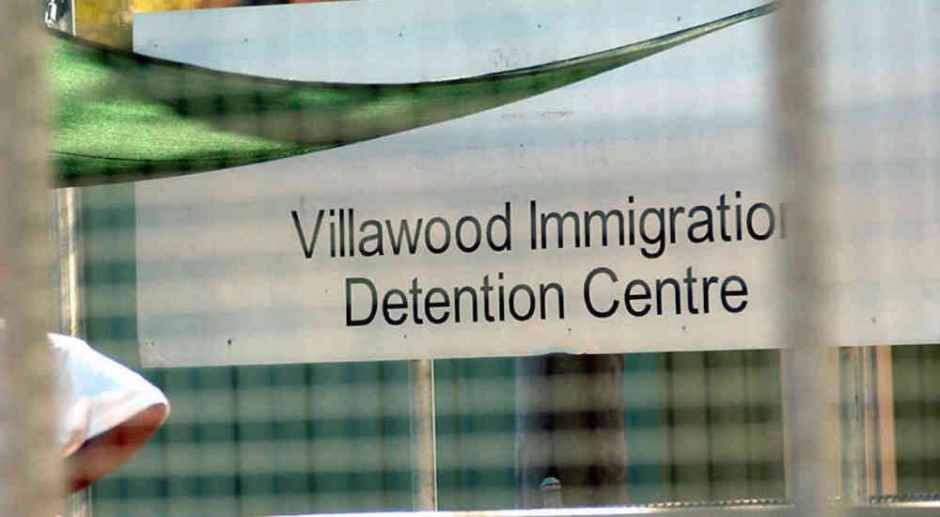 Would You Let A Car Do The Driving For You?Autonomous cars are coming, the question is are we ready?
Would You Let A Car Do The Driving For You?Autonomous cars are coming, the question is are we ready?

A Visit To Villawood Part 1
"If you want to learn something about absolutely anything, go to the primary sources first."
Words by Ian Malcom, header photo via.
As a 24 year old studying a degree in International Relations, I consider myself relatively well informed when it comes to Australian politics. In a pluralist society, it goes without saying that the issues that I consider to be most important may be considerably different to yours. In saying that, more often than not we'd hopefully find some common ground.
One matter that I think resonates with our generation is Australia's current immigration policy - and particularly the way it deals with asylum seekers. Our current government tells us that they are solving the "problem". They say they are "stopping the boats". They tell us that "Operation Sovereign Borders" is working. And maybe it is working ? Certain media outlets have been very forthright in proclaiming its success. But something doesn't sit well for me. Deep down, I can tell something just ain't right. And what's more, I know I'm not alone here.
One of the most acclaimed Australian authors of our time, Richard Flanagan, wrote something earlier this year that, at the point of reading, utterly tore me apart. It tore me apart because I knew immediately when I read it that every aspect of it I believed to be true. I have only read this paragraph half a dozen times in the months since he wrote it, but I can almost directly quote it - word for word:
"One day, many years from now, another prime minister will stand up and to a teary gallery apologise for the damage done to refugees in detention. We will be told that we didn’t know then what we know now. We will hear testimony of destroyed lives. But we did know. We always knew. We just chose not to hear and to silence those who tried to remind us of the truth."
I think we've known for a long time that something's not right. When Richard Flanagan and Tim Winton - two of Australia's most prominent thinkers - have resorted to pleading with the Australian public, we know something isn't right. When Prime Minister Tony Abbott went out on a personal tirade against our independent Human Rights Commissioner - Gillian Triggs - in the wake of the release of the Forgotten Children Report (which you can download HERE), surely we must know there is a very serious humanitarian crisis occurring on our doorstep?
So, what do I really know about all this? Everything I've told you so far has come from media sources which we - for the most part - rely on. How do I make sense of this constant barrage of (mis)information from all sides? How do I put together a well-informed opinion on the issue? Sure, I'm wholeheartedly against human suffering, and I reckon "stopping the boats" is (at best) a band-aid solution for a problem that needs to be addressed at an international level - but what viable alternatives can I suggest?
Well, as my old history teacher once said to me - if you want to learn something about absolutely anything, go to the primary sources first. So this week that's what I'm going to do. Until about a week ago I wasn't even aware you could go to a detention centre unless you had a very good reason for doing so. While chatting to a friend over a few beers, she quizzed me on whether I'd be interested in doing exactly that. She probably already knew my answer before she asked the question, but I'm almost certain that my response was a quizzical expression: "You can get into Villawood?!?"
So tomorrow afternoon I'll be walking into Villawood Detention Centre for the first time. My initial motive was purely personal - borne both out of curiosity and a desire to better understand the experiences of these faceless people we hear so much about. I hope to talk to people on the ground - asylum seekers themselves and people who work with asylum seekers on a daily basis. I want to meet people, remember faces and names and experiences so I can better grasp the nature of what it's like to be an asylum seeker in Australia. I want to understand how life works once you're in detention, including the most dramatic and exceptional moments - but also those that are frustratingly mundane and monotonous.
I don't expect to know or comprehend even a part of this complex issue, but ultimately I decided that if I could somehow share this experience with others, I could at least share experiences of the most personal kind. It's personal experiences we connect with most - those that touch us and make us cackle with laughter and or cry from utter devastation.
I wanted to write this before I went - because for all I know the moment I walk out of there my perspective may have changed on anything or everything. If I can read this post back to myself, and understand how those experiences of the most personal kind changed the way I understand this situation we as Australians find ourselves in, then maybe it'll go a long way to helping me form a critical yet honest opinion that is true to myself and my beliefs. Tomorrow might just be another day, or it might not...
 Would You Let A Car Do The Driving For You?Autonomous cars are coming, the question is are we ready?
Would You Let A Car Do The Driving For You?Autonomous cars are coming, the question is are we ready?
 Mental Health In AustraliaThe negative reality that so many face, and how we as a nation are dealing with it.
Mental Health In AustraliaThe negative reality that so many face, and how we as a nation are dealing with it.